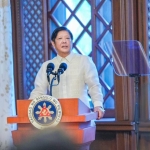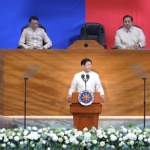
Last updated on August 16th, 2024 at 05:08 pm
President Ferdinand Marcos Jr. has passed Republic Act (RA) 120151 in a historic decision meant to strengthen the legal foundation for Muslim minorities in the Philippines. Establishing twelve extra circuit courts and three new Shari’a Judicial Districts all throughout the country, this law greatly expands the access to justice for most Muslims.
Historical Context and Amendments
Signed into law on August 12, 2024, RA 12018 radically changes Presidential Decree (PD) 1083, sometimes known as the Code of Muslim Personal Laws of the Philippines. Reflecting the demographic and geographical changes within the Muslim community, the first decree—which dates from a time when merely five Shari’a court districts were regarded sufficient—now spans larger territory. The first districts handled Sulu, Tawi-Tawi, Basilan, various cities and provinces under limited authority and resources. By stretching the limits of the judicial districts and so increasing the count of circuit courts, one can meet the increasing demand in these regions.
Modern Circuit Courts and Judicial Districts
From Davao City, the sixth Shari’a Judicial District today includes territory comprising Bukidnon, Davao, and Surigao provinces. This part is ready to assist a variegated population of Mindanao in making sure local legal issues unique to Muslim personal laws are handled where they arise. Based in Cebu City, the seventh district, from Aklan to Leyte provides the Visayas much-needed court facilities. From Ilocos Norte to Sorsogon, the eighth district—which includes Metro Manila and Baguio City—bring the capital and other metropolitan areas into the Shari’a legal system utilizing Manila City as its base. Twelve recently founded circuit courts, carefully placed to offer improved legal services over specific areas, are part of this reform.
Operational and staffing improvement
RA 12018 directs the expansion by offering the tools and personnel required for the operationalizing of these new districts and courts. While every Shari’a district court will consist of twelve members including judges, clerks, and administrative staff, every circuit court will have nine staff members. This staffing schedule guarantees that the courts are ready to manage the expected demand and offers employment inside the judicial system. The Supreme Court has a duty to designate the geographical jurisdiction of these courts such that they practically meet the interests of their particular Muslim communities. The Judiciary Law also requires local government entities inside these areas to provide sufficient facilities and equipment, therefore guaranteeing the seamless administration of these courts.
For inclusive justice
RA 12018 marks a major move towards the court system of the Philippines becoming more inclusive. This act enhances the commitment to justice and equality by raising the operational capability of the courts and so extending the reach of Shari’a law. It recognizes the particular legal responsibilities of the Muslim community and offers a structure suited for the ideas of the Philippine judicial system. Apart from providing justice near to the people these districts and courts serve, they empower and involve the Muslim population, therefore building the social fabric of the country.
Keep Reading
Future Prospects and Difficulties
The Shari’a court system has problems even if its spread is encouraging. Maintaining the new courts’ efficient operation calls for local government involvement and ongoing government financing. Maintaining high standards of justice and integrity of the legal system depends on giving judges and court workers first priority training. Moreover, the way these courts are incorporated into the larger legal system of the Philippines needs to be flawless to avoid jurisdictional conflicts and guarantee the defense of every citizen’s rights.
Conclusion: Direction Future
With RA 12018 the Shari’a court system in the Philippines starts a new chapter. This growth emphasizes the country’s will to create a fair and equal society as well as to increase the legal access for Muslims Filipinos. Setting an example for other legislative changes, the recently established courts will surely be extremely important in preserving the rights and handling the legal concerns of the Muslim minority when they start their operations. The success of this project will depend on the continuing dedication of all participants to aid and improve the Shari’a court system, thereby insuring that it stays a pillar of justice and equity in the Philippines.


























